In your parents’ eyes, you should be seen as absolutely perfect. Your mother and father love hearing the sound of you giggling, even when it’s a little too loud, and they find it adorable how your hair frizzes up in the rain (no matter how much you hate it). To them, you’re a masterpiece.
So when one person’s parents surprised them with aplastic surgeryconsultation, they began to wonder what exactly their flaws are. But thankfully, the visit took a wholesome twist. Below, you’ll find the full story that was recentlypostedon Reddit, as well as a conversation withSuwan Mehra, MD.
RELATED:
This person was less than thrilled when their parents made them an appointment with a plastic surgeon

Image credits:Alena Darmel/Pexels (not the actual photo)
But they were surprised to learn some exciting information about themself during the visit

Image credits:Andrea Piacquadio/Pexels (not the actual photo)
Image credits:wuxianlian
“Cleft lip is a common anomaly when the tissues forming the upper lip fail to join completely, occurring in one in every 700 live births worldwide”

Image credits:Tatiana Syrikova/Pexels (not the actual photo)
If you had extremely supportiveparents, there’s a good chance that they told you how special you are when you were growing up. “There’s no one else in the world exactly like you, so be yourself!”
But the reality is that most of us are actually very similar. We eat the same foods, experience the same frustrations every single day (the water filter is emptyagain?), and you might even have a doppelganger out there who bears an uncanny resemblance to you. And there’s absolutely nothing wrong with that!
However, there are some people, such as the author of this story, who actually do fall into a unique category. According to theWorld Health Organization, approximately 6% of children around the world are born with a congenital disorder. These include heart defects, neural tube defects, Down syndrome and more.
To learn more about cleft lips and cleft palates specifically, we got in touch withSuwan Mehra, MD, Chicago’s leading fetal surgery specialist. He was kind enough to have a chat withBored Pandaand explain just how common these conditions are.
“Cleft lip is a common anomaly when the tissues forming the upper lip fail to join completely, occurring in one in every 700 live births worldwide,” Dr. Mehra shared. “It is more commonly seen in males and affects certain ethnic groups more than others (1:600 Asians, 1: 1000 Caucasians and 1:2500 African Americans). 80% of babies with cleft lip also have a cleft palate.”
“What is described in the story is a case of congenital healed cleft lip”
So where does this anomaly come from? “It’s related to an abnormal development of the human embryo around the 6th -10th week following conception,” the expert says. “The earlier the insult, the more likely there is a cleft palate.”
“We describe the occurrence as multifactorial (genetic predisposition, environmental factors and nutritional deficiencies). Usually, there are multiple exposures such as smoking, alcohol use, exposure to chemicals, nutritional deficiencies (zinc, folate) and exposure to certain medications such as retinoids and anticonvulsants leading to this in a genetically predisposed individual,” Dr. Mehra continued.
We also asked the expert if he had ever heard of someone managing to heal their cleft lip before. “What is described in the story is a case of congenital healed cleft lip,” he noted. “This is a rare situation when the cleft lip spontaneously heals in the womb, however leaves a visible scar.”
And what is typically required to repair a cleft lip or palate? “Generally, there is a multidisciplinary team of plastic, maxillofacial surgery, orthodontic dentistry, ENT, genetics, speech and audiology that would follow a patient,” Dr. Mehra says.
“At birth, the lip is taped, and jaw expanders may be needed if there is a cleft palate. The cleft lip is repaired surgically between 2-3 months, and the cleft palate between 9-12 months,” he explained. “The wider defects require a delayed repair with most individuals having 2-3 operations in their lifetime.”
There is no reason to get plastic surgery unless you truly want to
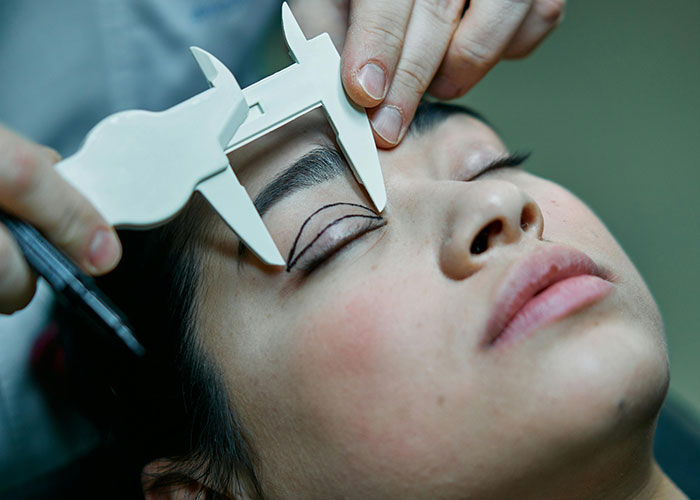
Image credits:cottonbro studio/Pexels (not the actual photo)
However, one thing to note is that almost nobodyneedsplastic surgery. Although it’s become normalized in recent decades, and it can be a godsend for people who have experienced traumatic injuries or want to repair deformities, undergoing cosmetic surgery is not something to be taken lightly.
Even theAmerican Society of Plastic Surgeonswarns on their website that these procedures certainly aren’t for everyone. First, the experts point out that if you have unrealistic expectations, you should not go through with it. Understand that even the final outcome may not be “perfect,” and do not expect to suddenly look like someone else.
If you don’t have a good support system or you suffer from body dysmorphia, those are two more signs that you probably shouldn’t have surgery. And if you already have health issues, the risks of these procedures may be elevated for you. Be honest with your doctor and understand that surgery might not be a good idea.
Readers shared their reactions, as well as some similar stories of their own, and the author joined in on the conversation
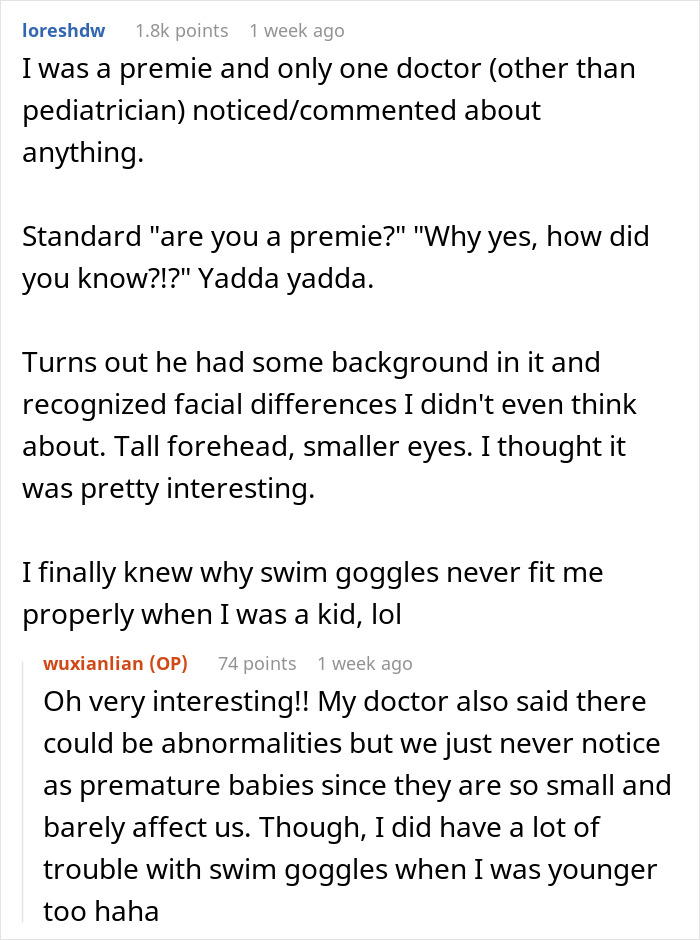
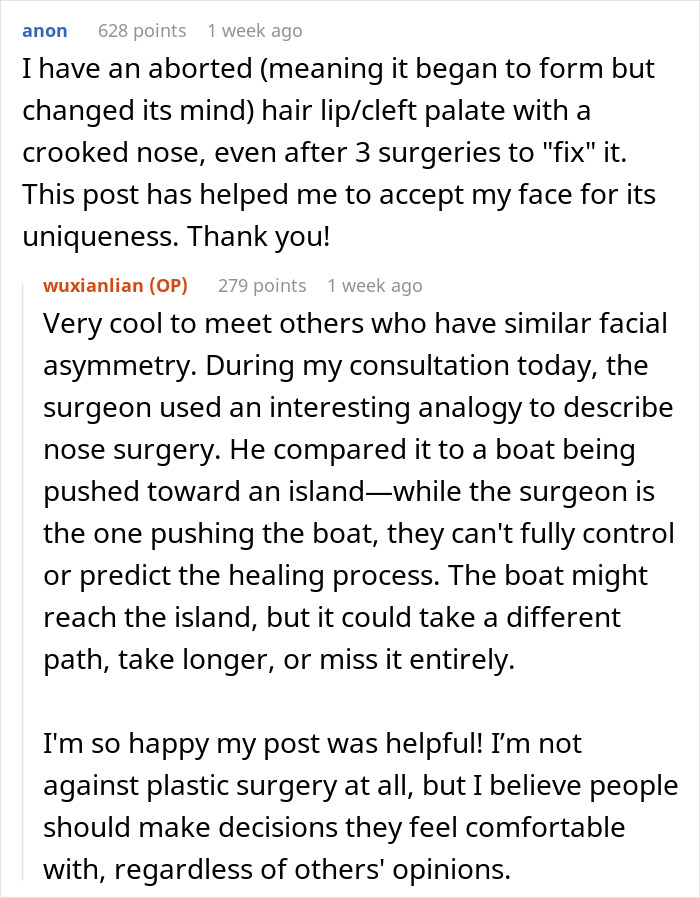
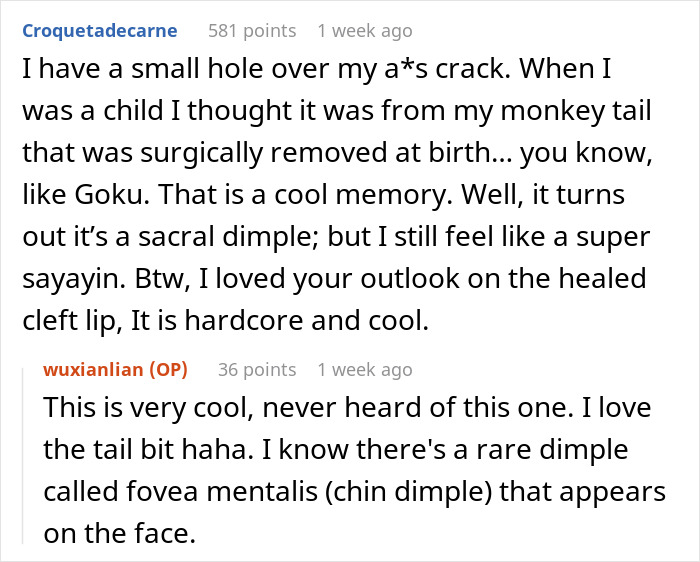
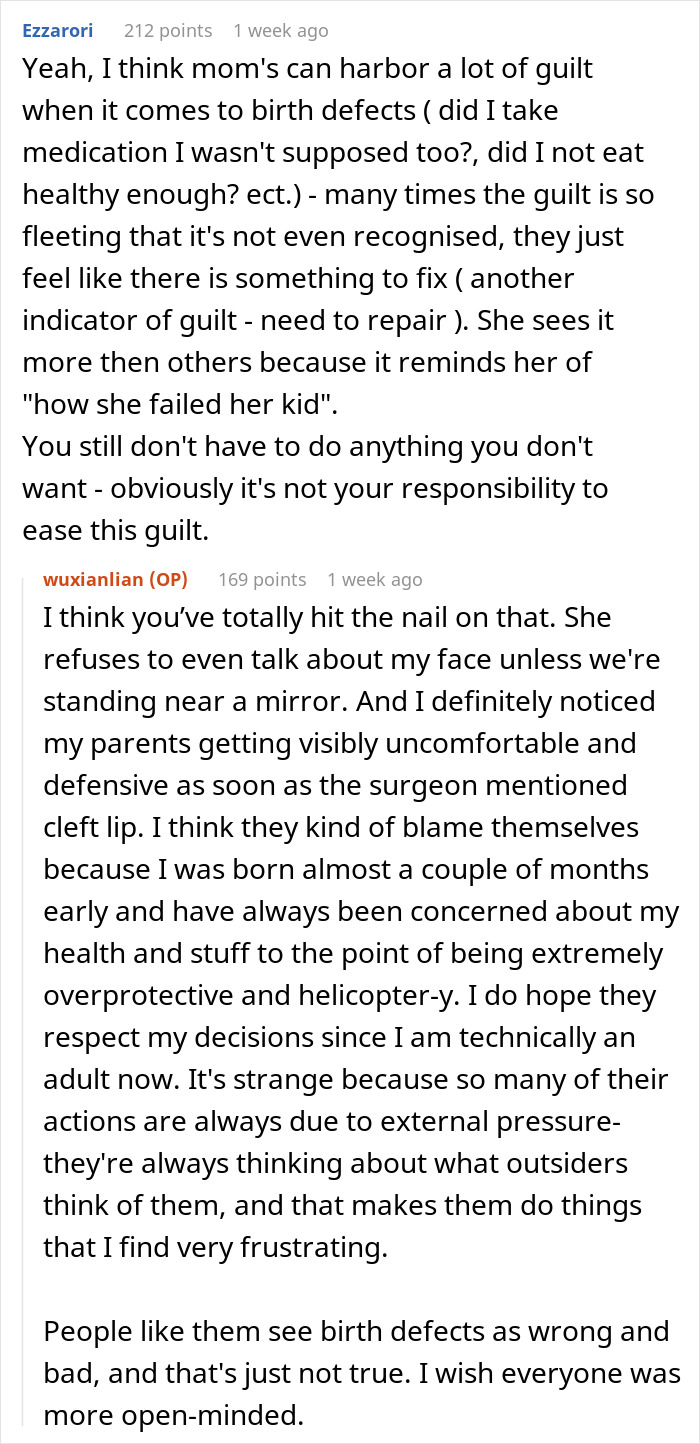

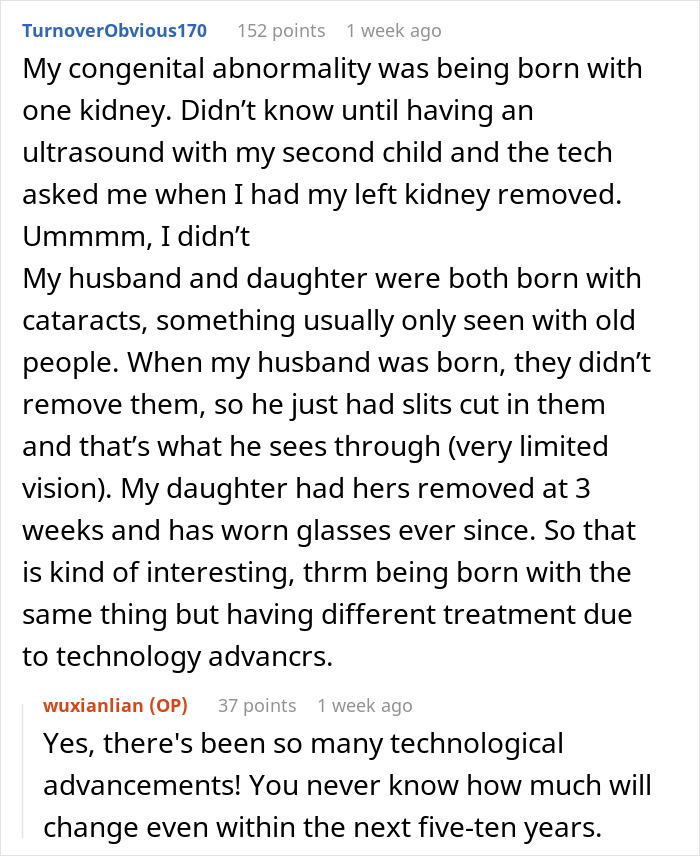
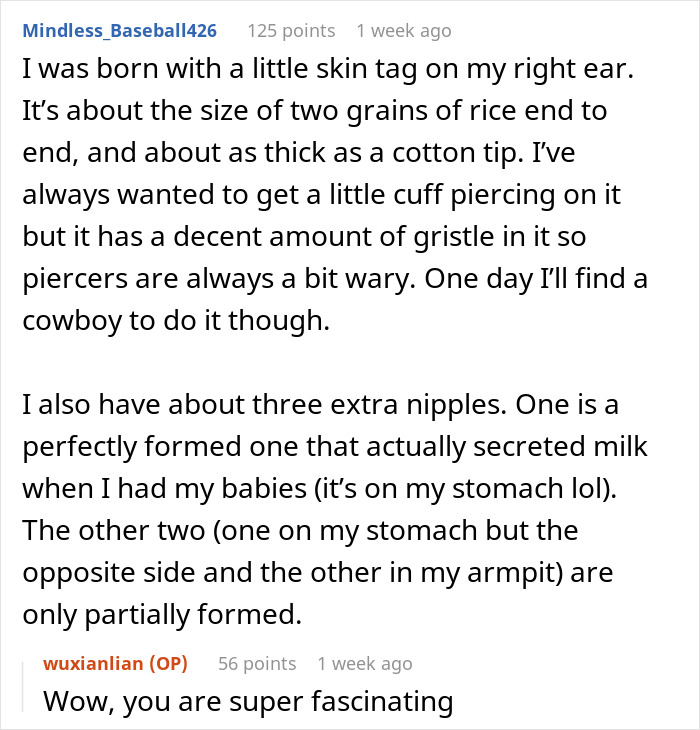
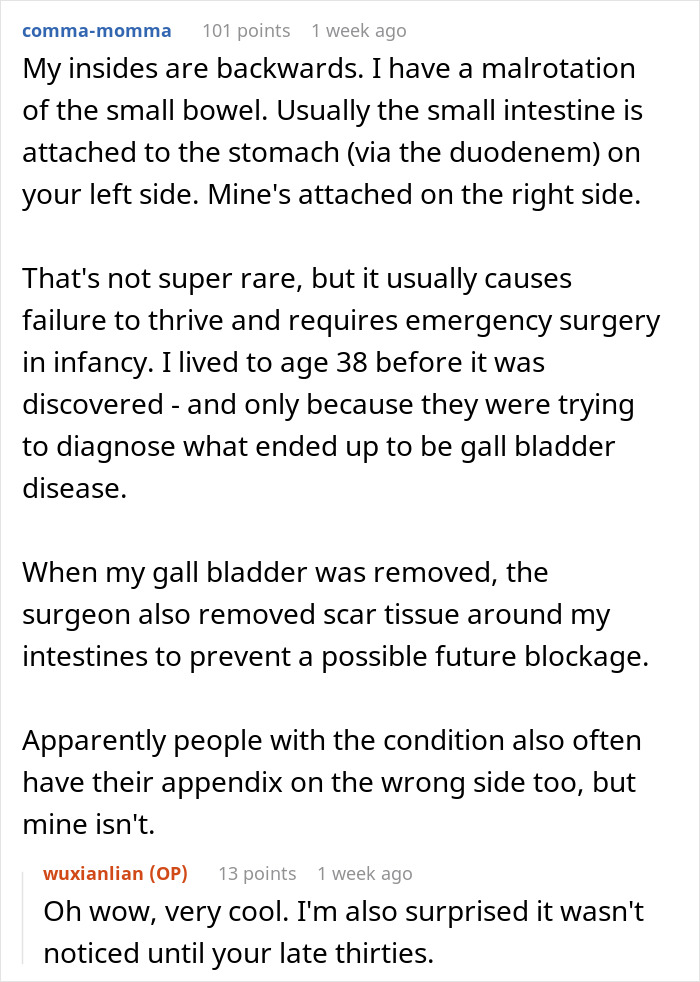
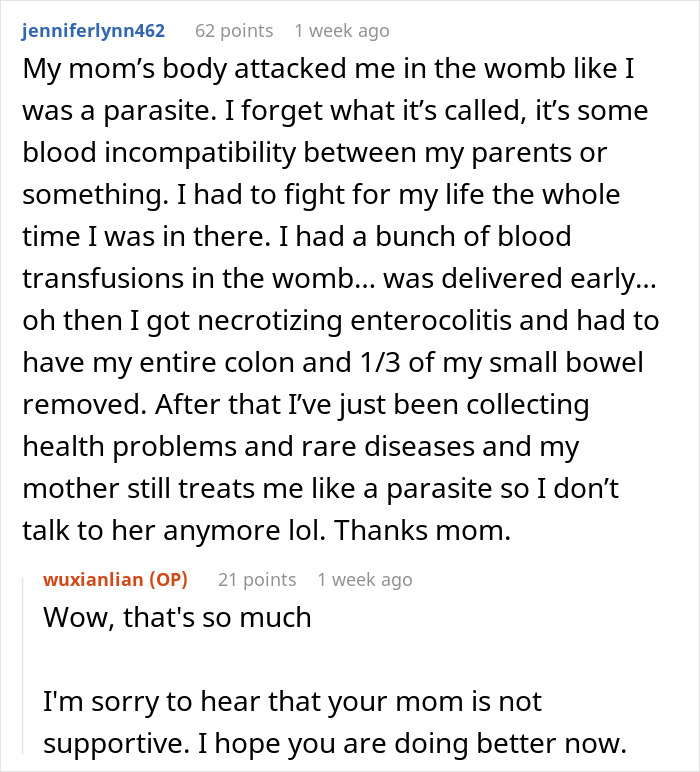


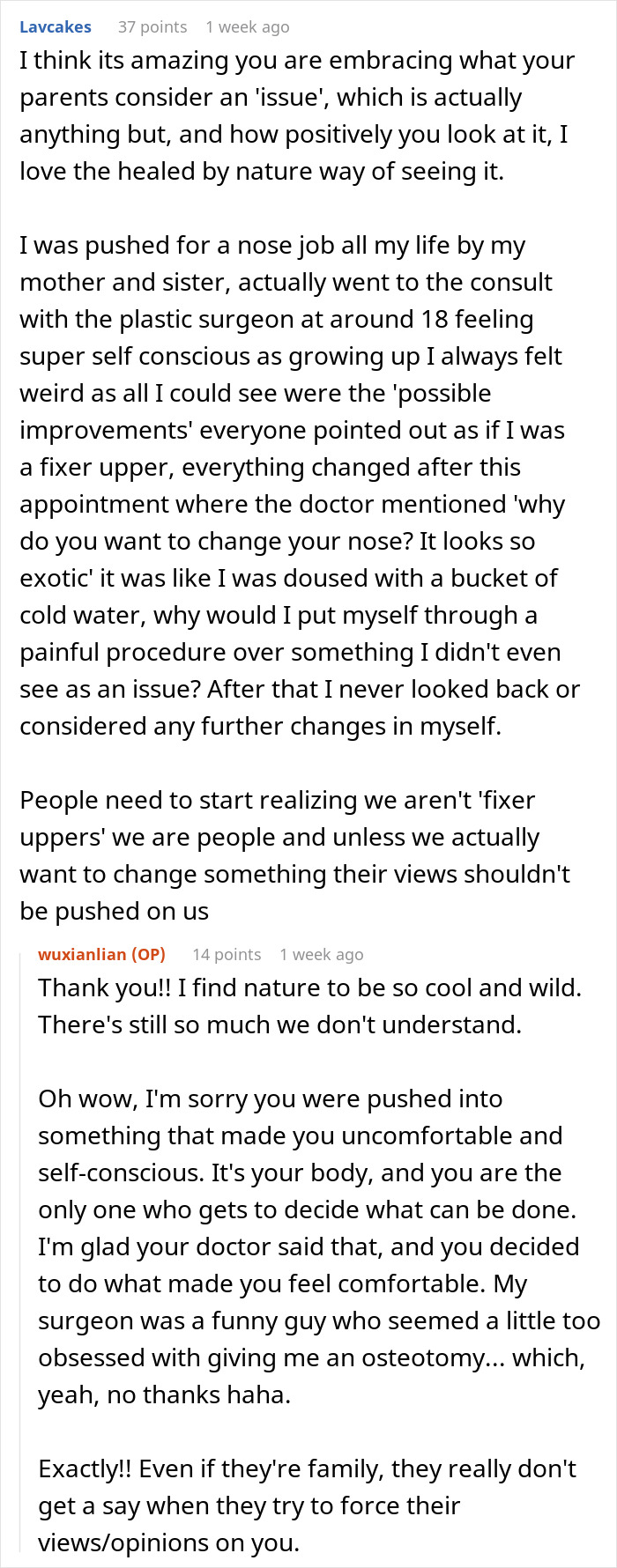

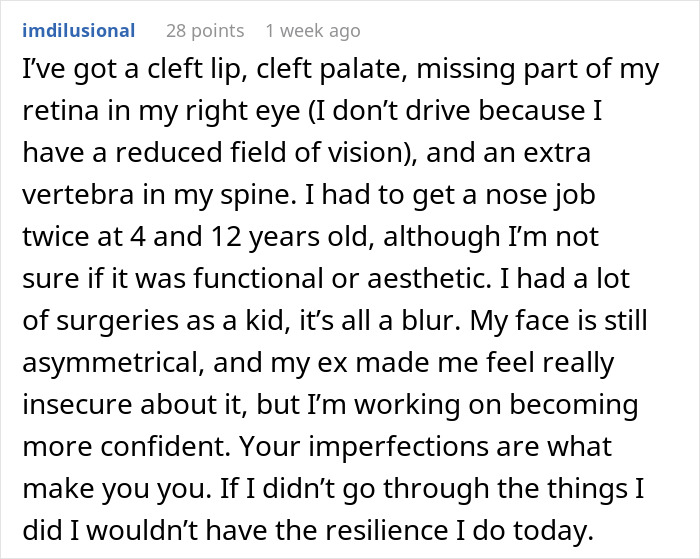
Thanks! Check out the results:Gabija Palšytė
Rugilė Žemaitytė
Gabija Saveiskyte
Relationships